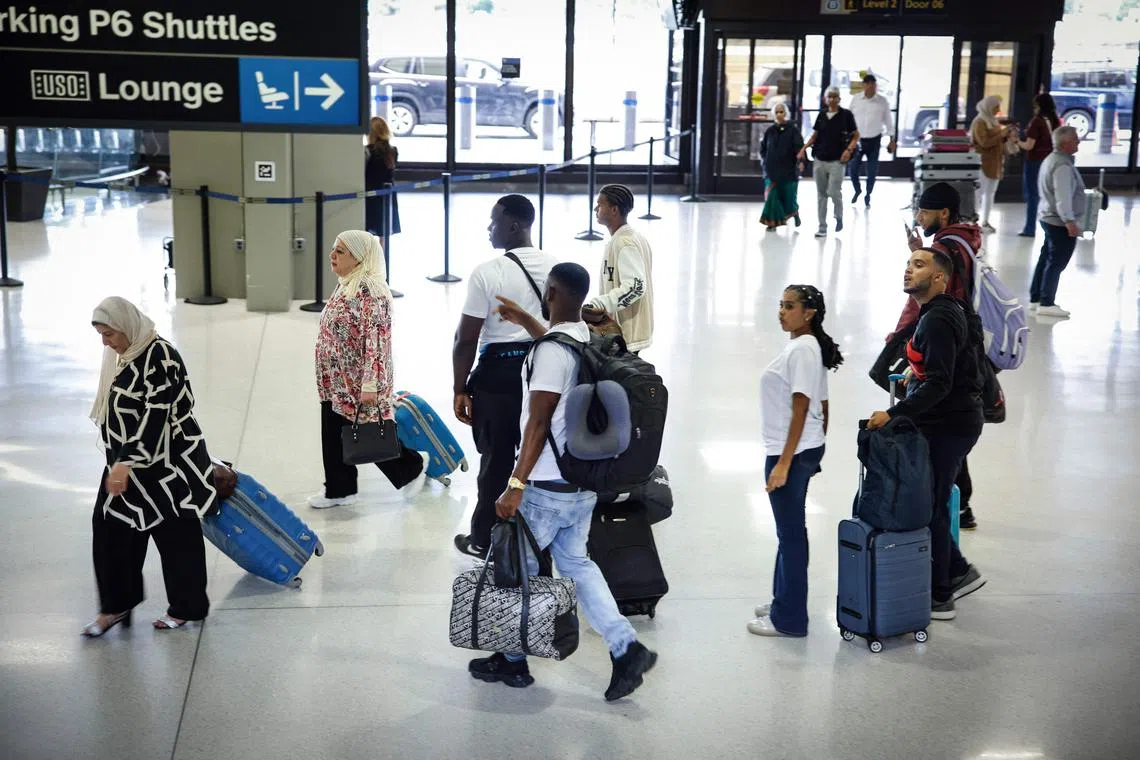What you need to know about Trump’s new travel ban
Sign up now: Get ST's newsletters delivered to your inbox

Exceptions to the travel ban include any lawful permanent resident of the US, dual nationals, as well as diplomats travelling on valid non-immigrant visas.
PHOTO: AFP
WASHINGTON - US President Donald Trump signed a proclamation on June 4 banning the nationals of 12 countries
When does it come into effect?
The proclamation signed by Mr Trump will come into effect on June 9, at 12.01am Eastern Daylight Time (12.01pm Singapore time).
Who does it apply to?
The proclamation states that the full and partial travel bans apply to foreign nationals of the designated countries who:
are outside the US on June 9, and
do not have a valid visa on June 9
The proclamation also states: No immigrant or non-immigrant visa issued before June 9 "shall be revoked pursuant to this proclamation."
Which countries are subjected to a full travel ban?
The following countries are subject to full bans on entry:
Afghanistan
Myanmar
Chad
Republic of the Congo
Equatorial Guinea
Eritrea
Haiti
Iran
Libya
Somalia
Sudan
Yemen
Which countries are subjected to a partial travel ban?
The following countries are subjected to the suspension of the entry of immigrants, and people on the following temporary visas: B-1, B-2, B-1/B-2, F, M, and J.
Burundi
Cuba
Laos
Sierra Leone
Togo
Turkmenistan
Venezuela
Are there any exceptions to the travel bans?
Exceptions to the travel ban include:
Any lawful permanent resident of the US
Dual nationals
Diplomats travelling on valid non-immigrant visas
Athletes or members of an athletic team and immediate relatives, travelling for the World Cup, Olympics, or other major sporting event
Immediate family immigrant visas
Adoptions
Afghan Special Immigrant Visas
Special Immigrant Visas for US government employees
Immigrant visas for ethnic and religious minorities facing persecution in Iran. REUTERS


